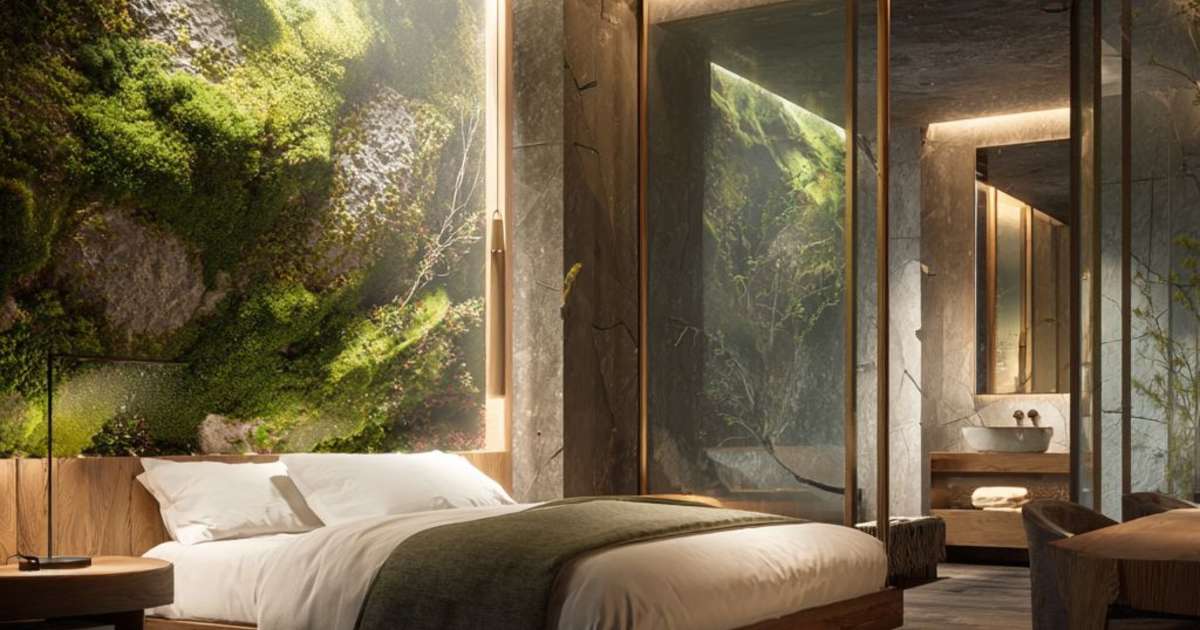
AI has collapsed the distance between culture and creation. The developers who act now won’t just predict the future of hospitality — they’ll build it.
Over the summer, a pink yacht docked off Marassi Marina in Egypt’s North Coast offering on-board beauty services by the Egyptian brand, Beauty 911 had appeared on my Instagram feed. I had no plans of going to Egypt but within minutes of seeing this Instagram reel, my August plans became experiencing the pink yacht with my girlfriends before the summer ended. What I felt in those moments, unfolding a scenario I hadn’t planned, is today’s traveler letting curiosity, preferences, and desire drive every decision. One captivating idea, one scroll-stopping image, can completely rewrite their travel.
This is the new reality of hospitality. Guests will go the distance for a story worth living. They aren’t chasing brands; they’re chasing moments. Yet most hotel brands are still built for a world that no longer exists. While developers are finalizing brand decks and design concepts, travelers are already chasing the next feeling, the next experience, the next escape. Guest desires now move at the speed of culture, and by the time most brands open their doors, the market has already changed.
A new era has begun, one where creativity and technology finally work as one to deliver those moments guests desire most. Artificial Intelligence has collapsed the distance between culture and creation, transforming hotel branding from a slow, reactive process into a living, predictive system. It senses what people are drawn to before it becomes mainstream, helping developers create hotels that feel not only relevant but inevitable.
This isn’t about keeping up. It’s about staying ahead, building the experiences and hotels of tomorrow while others are still trying to define what tomorrow looks like.
Branding that Moves with the Market
Traditional branding depends on instinct, focus groups, and long approval cycles. It was built for a slower age when trends lasted years, not months. But hospitality moves in moments now.
AI bridges that gap. By analyzing millions of cultural signals including travel searches, design trends, social conversations, and spending behavior, it can anticipate what travelers will crave next. Instead of reacting to the market, developers can now design in sync with it.
That foresight changes everything. It means the next generation of hotels can launch already aligned with what guests want most before competitors even see the wave forming.
Predicting Desire, Preventing Waste
Now, AI makes it possible to simulate how guests will move, feel, and spend before a single wall is built.
Tools like digital twins, predictive analytics, and immersive 3D modeling reveal how each decision will shape both emotion and economics, from how long guests linger in a lobby to how likely they are to return. This kind of intelligence saves real money: studies show early-stage modeling can prevent redesign costs of up to $2.5 million per project, while better flow planning can raise F&B revenue projections by as much as 40%.
But the benefit isn’t just operational, it’s emotional. When brand and technology work together from day one, every space feels intentional. Guests sense the difference instantly, and loyalty follows.
Forward-thinking developers are already using design intelligence platforms to cut time-to-market in half, reduce creative risk, and launch brands that immediately resonate with their audience. The results speak for themselves: faster openings, lower costs, and concepts that outperform the market from day one.
The Rise of Brand Intelligence
Branding and data used to live in separate worlds, one about feeling, the other about facts. Today, they’re merging into a single system called brand intelligence.
This emerging discipline, what many are calling brand intelligence, connects creative identity, guest behavior, and performance in real time. Imagine being able to track how guests emotionally respond to your story and design and adjusting campaigns or experiences based on what resonates most. These brands don’t stand still; they evolve.
Creativity, Multiplied
AI doesn’t replace human creativity, it multiplies it. It processes billions of insights so designers and developers can focus on what truly matters: story, emotion, and experience. It takes care of the precision, leaving visionaries free to dream even bigger.
When imagination meets intelligence, relevance stops being a moving target. It becomes your built-in advantage.
The Developer’s Edge
Pairing branding with technology isn’t a passing trend, it’s a strategic revolution. It shortens timelines, prevents costly missteps, and ensures every creative choice drives measurable return. It also transforms branding from an expense into an investment that compounds in value.
Developers who build this way aren’t just opening hotels, they’re launching ecosystems designed for cultural longevity. They build faster, smarter, and with greater confidence, creating properties that feel like they arrived right on time.
Building What’s Next, Now
The hotel brands that will define the next decade won’t just reflect culture, they’ll shape it. AI gives developers the power to read emotional demand before it surfaces, to sense the shifts that will define the next era of travel, and to act before the rest of the market catches on.
The future of hotel branding isn’t about guessing what guests will want. It’s about knowing it first and creating it before anyone else can.
That future is already being built by the ones who know how to merge creativity with intelligence.
The developers who move now won’t just predict the future of hospitality. They’ll build it, way before their competitors know what their customers want.
Sarah Jarnicki
BrandClave
Please visit:
Our Sponsor
